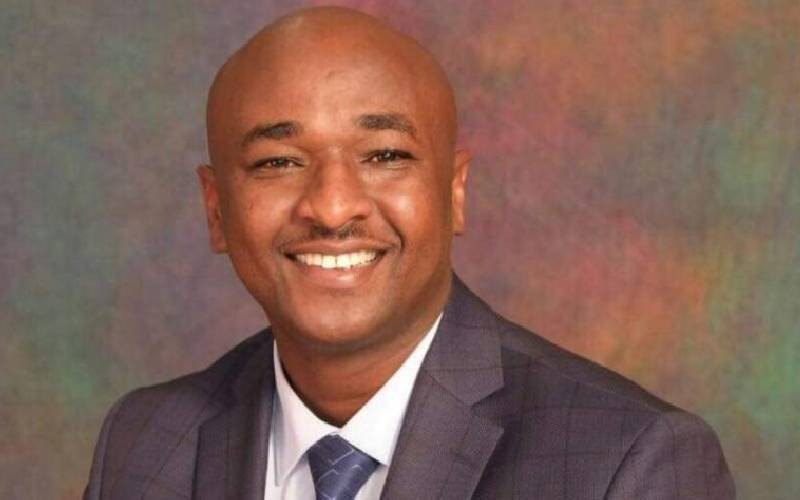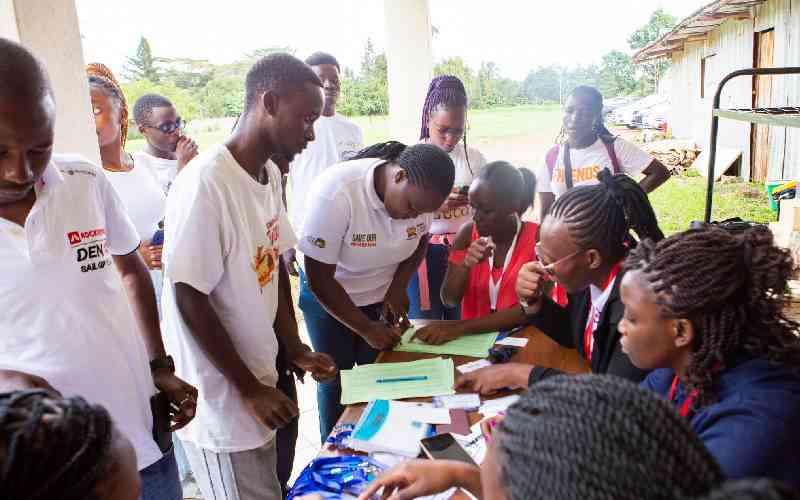By Henry Munene
[email protected]
As the festive season draws closer, crime tends to soar. We have heard of families being robbed at gunpoint as they return from overnight prayer vigils and bar patrons being crammed like sardines into the counter before they are divested of their watches, cell phones and cash.
But as I write this, insecurity across the country is more worrying than ever.
I am not only talking of the tensions between the Pokot and the Turkana, or the unsettling claims, which have vehemently been denied, that thugs recently managed to lay siege on our security forces up north.
I am concerned about people going home from work to find their houses reduced into empty halls after thugs carted away their electronics and other households.
I am also still taken aback by the sheer casualness of gangland murderers as seen when unknown people walked into an MP’s parents’ home and executed them in cold blood.
True, we have the Nyumba Kumi initiative, which aims at entrenching community policing in a country where citizens blame the police for everything from corruption to crime, even when we are the ones who give the bribes and hide the criminals in our midst.
Police reforms are also in the pipeline, but we need to do more to help cops do their work.
While the Nyumba Kumi initiative may be a little too late, and police corruption a reality, we also need to admit some home truths.
First and foremost, not all police officers are rogue. Secondly, many good cops are lured into crime when they encounter a million hurdles deliberately placed in their path to honest service.
Think of the guy transferred to some God-forsaken outpost for failing to participate in some shadowy operation, or to pave way for a ne’er-do-well who has a ‘tall’ relative higher up the ranks.
There is also that bitter officer whose blood pressure keeps rising whenever he goes to the local shopping centre, the territory of that armed thug they arrested and preferred charges against but who cheated the long arm of the law and was soon back into ‘circulation’.
Simply put, the police do a difficult job, and no NGOs crow ‘human rights’ when they encounter death or incapacitation in the line of duty.
They are not paid much, even though many of them have grown rich through cash from road blocks, Sh50 estate bar ‘collections’ and cutting deals with thugs. To be a police officer is akin to have a daily dance with death.
Which means if the rotten elements within the service are shown the door through a credible vetting process, and the police are given the resources and professional environment they need to work, they can easily regain public confidence.
Stay informed. Subscribe to our newsletter
And I should know!
Shortly after college, I lived at a place called King’eero in Kiambu, on the Nairobi-Wangige route. Now King’eero loosely translates into ‘a place where people are beheaded’. In those times, if you boarded a matatu in the CBD to King’eero, the matatu had to pass by Central Police or Spring Valley Police Station for a check-up.
Such was the insecurity on the route that sometimes you would all be frisked by the police and still be robbed by carjackers at a place nicknamed Kapenguria, near the Lower Kabete campus. I remember a friend moving into a two-bedroomed house that he did not need, but it was cheap and no-one wanted to live there.
He was soon shocked beyond belief when thugs parked their lorry at the gate and ordered the residents to load their households into it.
All this happened because there were no cops around. The nearest stations were at Kikuyu, and Spring Valley, many miles away. But when a police post came up near King’eero, the gunshots were no more.
Such, dear friend, is the power of police presence, which we must harness for the future of this country.
 The Standard Group Plc is a
multi-media organization with investments in media platforms spanning newspaper
print operations, television, radio broadcasting, digital and online services. The
Standard Group is recognized as a leading multi-media house in Kenya with a key
influence in matters of national and international interest.
The Standard Group Plc is a
multi-media organization with investments in media platforms spanning newspaper
print operations, television, radio broadcasting, digital and online services. The
Standard Group is recognized as a leading multi-media house in Kenya with a key
influence in matters of national and international interest.
 The Standard Group Plc is a
multi-media organization with investments in media platforms spanning newspaper
print operations, television, radio broadcasting, digital and online services. The
Standard Group is recognized as a leading multi-media house in Kenya with a key
influence in matters of national and international interest.
The Standard Group Plc is a
multi-media organization with investments in media platforms spanning newspaper
print operations, television, radio broadcasting, digital and online services. The
Standard Group is recognized as a leading multi-media house in Kenya with a key
influence in matters of national and international interest.









